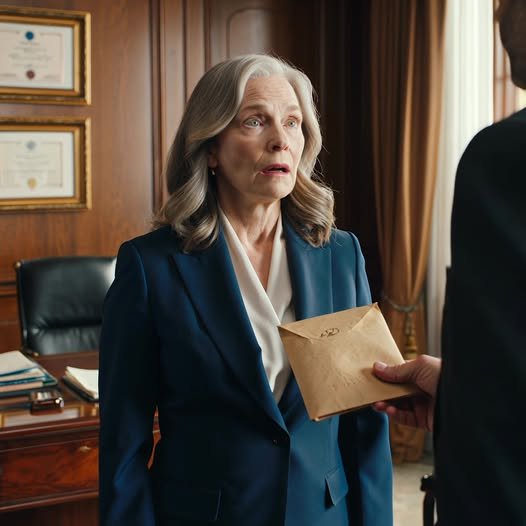Three months. That’s how long I’d been a widow when everything I thought I knew about my life crumbled in a single phone call. I was sitting in Conrad’s old chair, the brown leather one that still smelled faintly of his cologne if I pressed my cheek against the worn seam.
The afternoon light came through the living room window in soft stripes, catching dust motes that floated lazily in the air. On my lap was a cardboard box overflowing with sympathy cards I still couldn’t bring myself to throw away. It was the same house we’d shared for thirty‑eight years, the same beige walls, the same framed wedding photo on the mantel, the same grandfather clock that chimed every hour whether anyone was listening or not.
But everything felt different now. At sixty‑seven, I was learning what silence truly meant, a kind of heavy quiet that pressed against your ribs and made even your own breathing sound too loud. When the phone rang that Tuesday morning, I almost didn’t answer.
Most calls these days were either telemarketers or well‑meaning neighbors checking if I needed anything, their voices careful and gentle, as if I might shatter through the receiver if they spoke too loud. But something made me reach for it anyway. ‘Mrs.
Morrison, this is David Garrett, your husband’s attorney.’
I straightened in the chair. The cracked leather creaked under me, a tiny, familiar sound. We’d already handled the will reading weeks ago in his downtown office with its polished floors and too‑cold air‑conditioning.
Everything had been straightforward then: the house to me, the savings split between me and Marcus, our son. Conrad had always said he wanted things simple. What more could there be?
‘Hello, Mr. Garrett,’ I said, smoothing a wrinkle in my sweater as if he could see me. ‘Is there something wrong with the paperwork?’
There was a pause that made my stomach clench.
I’d been married long enough to recognize the weight of someone choosing their next words very carefully. ‘Mrs. Morrison, I found something in Conrad’s papers that requires immediate attention.
I need you to come to my office today, if possible.’
My fingers tightened around the phone. ‘What kind of something?’ I asked. Another pause.
Longer this time. In that tiny stretch of silence, I could hear the grandfather clock ticking behind me and a car driving past the house outside, life going on as if nothing were happening. ‘Ma’am, I’d rather discuss this in person,’ he said at last.
‘And Mrs. Morrison’ – his voice softened in a way that made my heart stutter – ‘don’t mention this call to your son yet. You need to see this first.’
The way he said it sent ice through my veins.
In forty‑three years of marriage, I’d learned to recognize the tone men used when they were about to deliver news that would change everything. Doctors used it before they said words like cancer. Police officers used it before they said words like accident.
Lawyers, apparently, used it before they said whatever was coming next for me. Two hours later, I sat across from David Garrett’s mahogany desk, my hands folded tightly in my lap to stop them from trembling. His office overlooked a busy street in the middle of our California town, the kind of place where palm trees lined the sidewalks and you could see the faint outline of the mountains if you looked past the strip malls.
The story doesn’t end here — it continues on the next page.
Tap READ MORE to discover the rest 🔎👇





